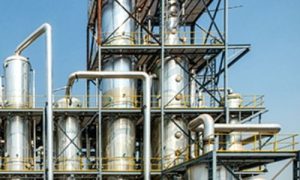Nigerian Firms Import N594bn Raw Sugar From Brazil

Nigerian firms imported 853,373 tonnes of Brazilian sugar worth $396 million between April and September 2025, amid rising demand and a 27% price surge. The National Sugar Development Council emphasized boosting local production through the Backward Integration Programme, addressing regulatory loopholes, improving factory practices, and expanding sugarcane cultivation to achieve self-sufficiency.
Nigerian firms have taken delivery of N594 billion ($396 million) worth of sugar in five months from Brazil, following increase in demand.
Findings from Trade Data Monitor (TDM) indicated that a total of 853,373 tonnes of raw sugar was imported to the country between April and September 2025.
A tonne of the commodity is sold at $464.10 per tonne in the country, following sudden increase in price by 27 per cent from $339 per tonnes.
In September, data obtained from the Nigerian Ports Authority (NPA)’s shipping position revealed that 108,465 tonnes of the consignment arrived in two ships at Lagos Port Complex in Apapa.
It noted Lotus Spring ferried 56, 165 tonnes to the Apapa Bulk Terminal Limited (ABTL) and Iokatis GS laden with 52, 300 tonnes at Greenview Development Nigeria Limited (GDNL), Lagos Port.
Rhe shipping data stressed that MV Ken Wave has also berthed berthed with 52,000 tonnes on Friday.
Findings from the International Sugar Organisation (ISO) revealed that there has been higher than the expected output from Brazilian mills, contrary to the global market deficit projection for the year.
Between February and June the country imports has been fluctuating as $93 million worth of the consignment was delivered in June; May, $66.8 million: April, $85 million; March, $24 million and February, $88.5 million. Recall that the Federal Government has rolled out comprehensive plan for accelerated sugar project development in 2025 to encourage investors to grow sugar by 9.4 per cent from $1.84 billion in 2024 to $2.03 billion in 2025.
The Executive Secretary of the National Sugar Development Council (NSDC), Mr. Kamar Bakrin, had briefed stakeholders on measures being taken by government to address obstacles to local sugar production.
At a tripartite meeting of the council, the Ministry of Industry, Trade and Investment and the major Backward Integration Programme (BIP) operators, in Abuja, he noted that the council had elevated performance monitoring and oversight of BIP operators beyond what the Sugar Industry Monitoring Group (SIMOG) did in the past.
Bakrin added that operators had complained about loopholes in the free trade zone regime, delays in equipment clearing, smuggling, and host community resistance.
The executive secretary highlighted financing support, sanctions for underperformance and the need for operators to improve agronomic and factory practices, noting that growing sugarcane and processing it in the country was more sustainable and rewarding than importing raw sugar.
He said: “The operators have complained about the existing loopholes in the free trade zone regime, which they believe certain participants in the NSMP have exploited.
“They also cited delays in the clearing of equipment at the ports, smuggling of sugar into the country, the expansion of their BIP programmes as the primary causes of the delays in their BIP execution.
The loopholes in the FTZ regime are being addressed by the ongoing amendment of the NSDC Act by the National Assembly.
“The amendment process which has involved engagements with the relevant National Assembly Committee and key stakeholders among other objectives, address the concern of the BIP operators and also make the industry more attractive to other investors.”
Also, he noted that total installed capacity of Nigeria’s sugar refineries had risen to three million metric tonnes, creating self-sufficiency in the production of refined sugar and securing a steady supply of refined sugar for the domestic market.
Bakrin stressed that the Backward Integration Programme under the NSMP had attracted $1 billion worth of investments from its major investors, who have created over 15,000 permanent and seasonal jobs, acquired over 180,000 hectares, placed 13,000 hectares under cane, established cane processing factories with a total capacity of 18,000TCD in five active project sites.
To Read more about Sugar Industry continue reading Agriinsite.com
Source : New Telegraph















